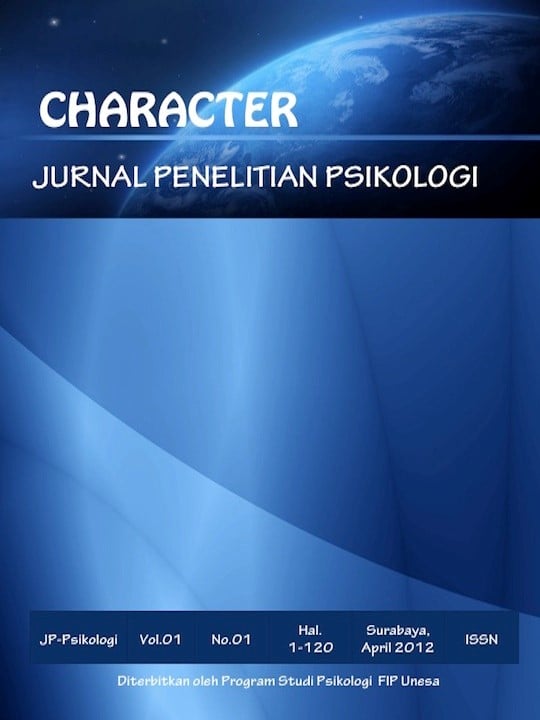PENGALAMAN CAREGIVER INFORMAL DALAM MERAWAT LANSIA PADA MASA PANDEMI
DOI:
https://doi.org/10.26740/cjpp.v9i2.45573Abstract
Abstrak
Masa pandemi mempengaruhi semua aspek kehidupan manusia sehingga akan berdampak pada banyak hal termasuk pada lansia. Lansia sendiri termasuk kedalam kategori kelompok yang rentan terjangkit corona sehingga diperlukan berbagai pencegahan agar hal tersebut dapat terhindar selain itu lansia sendiri dalam kegiatan sehari harinya mengalami berbagai kendala sehingga mereka memerlukan bantuan caregiver dalam kehidupan sehari harinya. Caregiver di masa pandemi tidak hanya dituntut untuk beradaptasi dengan pandemi namun juga harus beradaptasi dalam memberikan perawatan terhadap lansia pada masa pandemi. Penelitian ini menggunakan metode kualitatif. Pendekatan yang dipergunakan ialah pendekatan fenomenologi. Data dikumpulkan menggunakan metode wawancara semi terstruktur. Subjek dalam penelitian ini ialah tiga orang, dimana mereka ditentukan dengan kriteria sebagai berikut; (1) caregiver adalah anggota keluarga yang memberikan perawatan kepada lansia, (2) caregiver telah memberikan perawatan kepada lansia minimal selama satu tahun, (3) caregiver bertempat tinggal dalam satu rumah dengan lansia yang dirawatnya, (4) caregiver berkenan menjadi subjek dalam penelitian ini. Analisis data yang digunakan ialah interpretative phenomenological analysis (IPA). Penelitian ini menemukan hasil bahwa alasan caregiver merawat lansia rata rata dikarenakan rasa tanggung jawab. Beban yang dirasakan oleh caregiver saat memberikan perawatan pada lansia di masa pandemi meliputi beban merawat secara fisik, psikologis, dan finansial.
Kata Kunci: caregiver informal, lansia, pandemi
Abstract
The pandemic period affects all aspects of human life so that it will have an impact on many things, including the elderly. The elderly themselves are included in the category of groups who are prone to contracting the corona virus so that various precautions are needed so that this can be avoided. Besides that, the elderly themselves experience various obstacles in their daily activities so they need caregiver assistance in their daily lives. Caregivers during a pandemic are not only required to adapt to the pandemic but also have to adapt in providing care for the elderly during a pandemic. This study uses a qualitative method. The approach used is a phenomenological approach. The data were collected using a semi-structured interview method. The subjects in this study were three people, where they were determined by the following criteria; (1) caregivers are family members who provide care for the elderly, (2) caregivers have provided care for the elderly for at least one year, (3) caregivers live in the same house with the elderly they care for, (4) caregivers are willing to be subjects in the study this. The data analysis used is interpretative phenomenological analysis (IPA). This study found that the reason for caregivers caring for the elderly was due to a sense of responsibility. The burden felt by caregivers when providing care to the elderly during a pandemic includes the burden of caring for physically, psychologically, and financially.
Keywords: informal caregiver, pandemic, elderly
Downloads
Downloads
Published
How to Cite
Issue
Section
License
Authors who publish in this journal agree to the following terms:
Copyright in any article is held by the author.
The author grants the journal, publication rights with the work simultaneously licensed under a Creative Commons Attribution License that allows others to share the work with an acknowledgment of the work's authorship and initial publication in this journal.
Authors may enter into separate, additional contractual arrangements for the non-exclusive distribution of the journal's published version of the work (e.g., posting it to an institutional repository or publishing it in a book), with an acknowledgment of its initial publication in this journal.
Authors are permitted and encouraged to post their work online (e.g., in an institutional repository or on their website) prior to and during the submission process, as this can lead to productive exchanges, as well as earlier and greater citation of published work.
 Abstract views: 714
,
Abstract views: 714
, PDF Downloads: 1951
PDF Downloads: 1951





